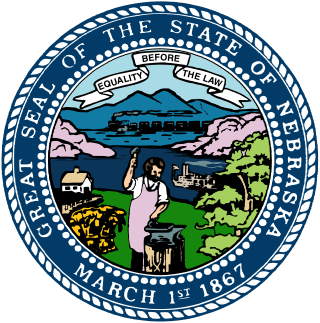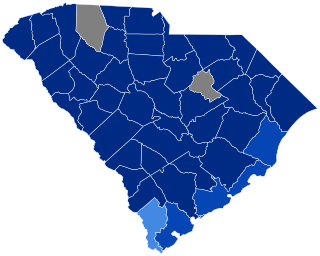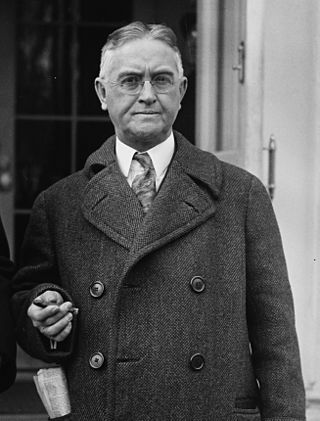
Presidential elections were held in the United States on November 3, 1908. Republican Party nominee William Howard Taft defeated threetime Democratic nominee William Jennings Bryan. Incumbent President Theodore Roosevelt honored his promise not to seek a third term, and persuaded his close friend, Taft, to become his successor. With Roosevelt's support, Taft won the presidential nomination at the 1908 Republican National Convention on the first ballot. The Democratic Party nominated Bryan, who had been defeated twice previously, in 1896 and 1900, by Republican William McKinley.

Presidential elections were held in the United States on November 4, 1924. Incumbent Republican President Calvin Coolidge won election to a full term. Coolidge was the second vice president, after Theodore Roosevelt, to ascend to the presidency and then win a full term.

The 1924 Democratic National Convention, held at the Madison Square Garden in New York City from June 24 to July 9, 1924, was the longest continuously running convention in United States political history. It took a record 103 ballots to nominate a presidential candidate. It was the first major party national convention that saw the name of a woman, Lena Springs, placed in nomination for vice president. John W. Davis, a dark horse, eventually won the presidential nomination on the 103rd ballot, a compromise candidate following a protracted convention fight between distant front-runners William Gibbs McAdoo and Al Smith.

Charles Wayland Bryan was an American businessman and politician who served as the 20th and 23rd Governor of Nebraska, and Mayor of Lincoln, Nebraska, and was the Democratic nominee for Vice President in 1924. He was the younger brother of William Jennings Bryan.

The 1924 Republican National Convention was held in Cleveland, Ohio, at the Public Auditorium, from June 10 to 12.

The Nebraska Democratic Party (NDP) is the affiliate of the Democratic Party in the state of Nebraska. Over 700 Democrats are elected across the state of Nebraska. Jane Kleeb is the chair of the Nebraska Democratic Party and also serves as the Midwest Chair of the Association of State Democratic Committees.

The 2014 Nebraska gubernatorial election took place on Tuesday, November 4, 2014, to elect the 40th Governor of Nebraska. Republican Candidate and former COO of TD Ameritrade Pete Ricketts defeated Democratic candidate and former Regent of the University of Nebraska Chuck Hassebrook, receiving 57.2% of the vote to Hassebrook's 39.2% This was the first open seat election, and the first time a Democrat won a county for governor since 1998.

A general election was held in the U.S. state of Nebraska on November 6, 2018. All of Nebraska's executive officers were up for election as well as a United States Senate seat, and all of Nebraska's three seats in the United States House of Representatives.

The 1924 United States presidential election in South Carolina took place on November 4, 1924, as part of the 1924 United States presidential election which was held throughout all contemporary 48 states. Voters chose 9 representatives, or electors to the Electoral College, who voted for president and vice president.

The 1926 Nebraska gubernatorial election was held on November 2, 1926, and featured incumbent Governor Adam McMullen, a Republican, narrowly defeating Democratic nominee, former Governor Charles W. Bryan, to win a second and final two-year term in office.

The 1922 Nebraska gubernatorial election was held on November 7, 1922, and featured former Mayor of Lincoln Charles W. Bryan, a Democrat, defeating Republican nominee, state Senator Charles H. Randall.

The 1918 Nebraska gubernatorial election was held on November 5, 1918, and featured former lieutenant governor Samuel R. McKelvie, a Republican, defeating incumbent Democratic governor, Keith Neville.

The 2020 United States House of Representatives elections in Nebraska was held on November 3, 2020, to elect the three U.S. representatives from the state of Nebraska, one from each of the state's three congressional districts. The elections coincided with the 2020 U.S. presidential election, as well as other elections to the House of Representatives, elections to the United States Senate and various state and local elections.

The 2024 United States Senate election in Nebraska was held on November 5, 2024, to elect a member of the United States Senate to represent the state of Nebraska. Republican incumbent Deb Fischer was re-elected to a third term, defeating independent union leader Dan Osborn. This was the first time since 1954 when both of Nebraska's U.S. Senate seats were concurrently up for election due to a special election for Nebraska's other Senate seat.

The 1946 Nebraska lieutenant gubernatorial election was held on November 5, 1946. Incumbent Nebraska Lieutenant Governor Roy W. Johnson lost to Robert B. Crosby in the Republican primaries after the Nebraska Republican Pre-Primary Convention refused to endorse him for reelection. Thus, the general election featured Robert B. Crosby as the Republican nominee who defeated Democratic nominee Robert J. Swanson.

The 1926 Nebraska lieutenant gubernatorial election was held on November 2, 1926, and featured incumbent Nebraska Lieutenant Governor George A. Williams, a Republican, defeating Democratic nominee Frank A. Dutton as well as Progressive nominee Lloyd H. Huffman.

The 1924 Nebraska lieutenant gubernatorial election was held on November 4, 1924, and featured Republican nominee George A. Williams defeating Democratic nominee P. J. Mullin as well as Progressive nominee Granville Hummer and Prohibition nominee J. F. Webster. Incumbent Nebraska Lieutenant Governor Fred G. Johnson, a Republican, chose not to seek reelection to the office of lieutenant governor in order to challenge George W. Norris for the Republican nomination for US Senate from Nebraska.

The 1922 Nebraska lieutenant gubernatorial election was held on November 7, 1922, and featured Republican nominee Fred G. Johnson defeating Democratic nominee P. J. Mullin as well as Progressive nominee T. J. Ellsberry. Incumbent Nebraska Lieutenant Governor Pelham A. Barrows, a Republican, chose not to seek reelection to the office of lieutenant governor in order to run for the vacant seat of C. Frank Reavis, former US Representative from Nebraska's 1st congressional district. Barrows was unsuccessful at obtaining the Republican nomination.

The 1918 Nebraska lieutenant gubernatorial election was held on November 5, 1918, and featured Republican nominee Pelham A. Barrows defeating Democratic nominee William B. Banning as well as Prohibition Party nominee David B. Gilbert. Incumbent Nebraska Lieutenant Governor Edgar Howard decided not to seek reelection to the office of lieutenant governor in order to run for US Senate, but he was defeated in the Democratic primaries by John H. Morehead.



















